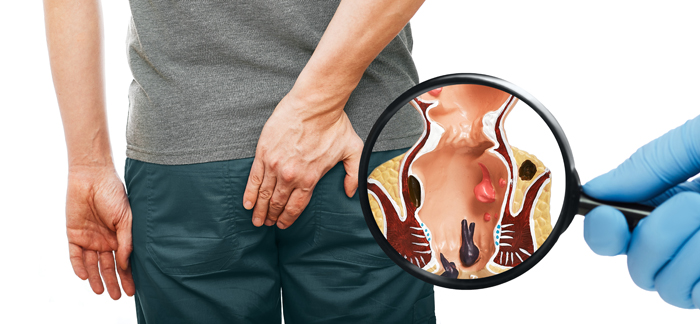Piles Treatment in Sadashiv Peth, Pune
Haemorrhoids are swollen veins that occur near the anus or the lower rectum. It is a very common condition where almost 50% of adults experience the symptoms. This condition can be both internal and external where internal haemorrhoids occur inside the anus and external develop outside. This condition is also commonly known as piles.
Generally, external haemorrhoids are the most common type, which can cause pain, itching, and even lead to difficulty in sitting. It is a treatable condition. Certain lifestyle changes can also help ease symptoms in patients.

What Causes Haemorrhoids?
When a lot of pressure is put on the veins near the anus, haemorrhoids occur. Some of the most common causes include;
- Putting too much pressure during bowel movements
- Hard stools
- Chronic constipation or problems associated with it
- If you are someone who sits for long bouts of time, especially in the toilet
- If you have a family history of piles
- Pregnancy can also cause piles
- Being obese
- Having anal sex
- Consuming a low-fibre diet
- If you are someone who heavy lifts frequently
What are the Symptoms of Haemorrhoids?
The most common symptoms of haemorrhoids include;
- Feeling extreme itchiness around the anus
- Feeling pain or irritation around the anus
- Finding a painful lump or swelling near the anus
- Faecal leakage
- Bowel movements that are very painful
- Noticing blood in the stools or the tissue
Haemorrhoids are not life-threatening. Therefore, don’t worry. That being said, if you notice the symptoms of piles, visit a doctor immediately as it can cause other complications.
When to Visit a Doctor?
Generally, mild symptoms can get better on their own in a day or two. But, if you notice severe haemorrhoid symptoms or bleeding, you need medical attention, which you must not neglect.
Request an appointment at Apollo Spectra Hospitals, Pune
Call 1860-500-2244 to book an appointment
How are Haemorrhoids Diagnosed?
When you visit a doctor, he will do a physical examination and take a closer look at the anal area. However, to further confirm the analysis, your doctor might conduct a few tests. The most common test is the digital rectal exam where the doctor inserts a well-lubricated gloved finger inside the rectum to analyse if there are any lumps.
If you are someone who is prone to gastrointestinal disease, an anoscopy, colonoscopy, or sigmoidoscopy might be recommended. During these tests, a small camera is inserted in the anus to check for any abnormalities.
How is Haemorrioid Treated?
Pain Relief
There are some home remedies, which your doctor might suggest to ease the pain. This includes soaking in a warm tub for at least 10 minutes. If the pain is too extreme, painkillers might also be prescribed.
Fibre Food or Supplements
Eating fibre-rich food is a practice you must follow if you are prone to haemorrhoids. Your doctor might also prescribe supplements, such as psyllium to ease the condition.
Procedure
If nothing else works, a medical procedure known as a rubber band ligation may be performed. Here, the circulation to the haemorrhoid is cut off by using a rubber band.
How to Prevent Haemorrhoids?
- Always ensure you drink enough water, where you consume at least 8 glasses of water every day
- When you feel like passing bowels, always use the restroom and don’t try to control it
- Don’t sit for long periods of time on hard surfaces
- Maximize the intake of fibre. Some of the fibre-rich food are;
- Whole wheat
- Brown rice
- Oatmeal
- Pears
- Carrots
- Buckwheat
- Bran
Finally, it is important to understand that with a few tweaks in your lifestyle, you will be able to avoid haemorrhoids or piles. However, if you ever notice any symptoms, you must visit a doctor to get rid of the problem.
Yes, obesity can develop haemorrhoids. Therefore, it is important to maintain an ideal weight.
Piles are a common pregnancy symptom that some women develop after 20 weeks. It generally goes away after childbirth. However, it is important to talk to your doctor about the same.
Yes, it is a treatable condition
Symptoms
Our Top Specialities
NOTICE BOARD
CONTACT US
CONTACT US
 Book Appointment
Book Appointment


.svg)
.svg)
.svg)
.svg)








